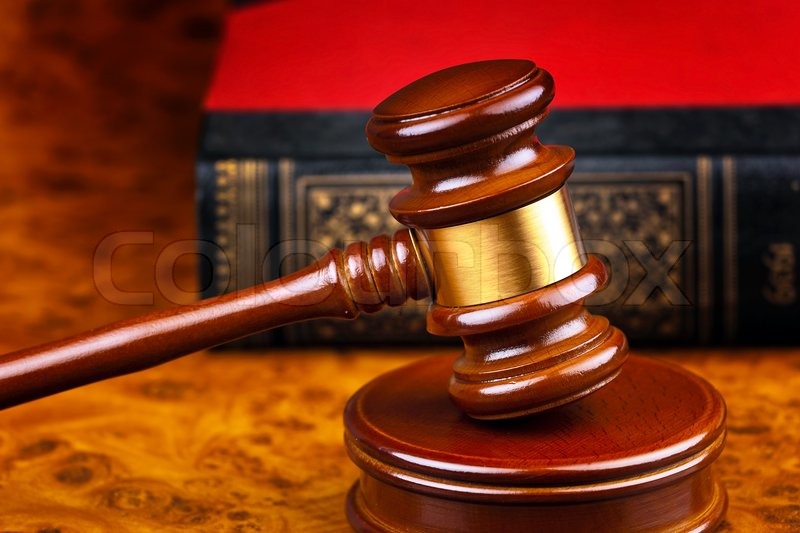The Federal High Court in Lagos, Friday, vacated the bench warrants issued against four officials of Akwa Ibom State government for allegedly refusing to appear before the court.
The officials which include Nsikan Nkan, the state’s Commissioner for Finance; Mfon Udomah, the Accountant-General of the state; Uwemedimo Nwoko, the state’s Attorney-General and Commissioner for Justice and Margaret Ukpe were all said to be at large by the Economic and Financial Crimes Commission (EFCC).
Their names were listed by the EFCC in the N1.4 billion alleged money laundering charge it brought against Mr. Paul Usoro (SAN), the President of the Nigerian Bar Association (NBA).
Justice Rilwan Aikawa vacated the arrest order after granting of an application dated 4th March, 2019, asking that the Bench warrant be set aside.
While moving the application for the lifting of the Bench warrant, Chief Mike Ozekhome (SAN), the applicants lawyer, noted that the court has no jurisdiction over his clients as no charge is yet to be filed against them by the EFCC.
Ozekhome noted that the tussle dated back to February 2017, when the Akwa Ibom government sued the EFCC at a Federal High Court in Uyo over the harassment of its officials by the anti-graft agency.
He alleged that despite a subsisting order of the Uyo court asking the anti-graft agency to cease all action pending the conclusion of the case, the officials are still being harassed by the EFCC.
“The Attorney-General of Akwa Ibom was the one personally conducting the Uyo’s case. The court later asked parties to stay all actions pending the conclusion of the case.
“Initially the order was obeyed by the EFCC, but it later somersaulted and commenced a new wave of harassment of the officials.
“The Attorney-General later went physically to the Abuja office of the EFCC to lodge complaints but when nothing changed, contempt proceedings were commenced against EFCC”, Ozekhome said.
The senior lawyer also faulted the EFCC for asking the court for issuance of Bench warrant against his clients when there was no record that they ignored lawful summon.
Ozekhome, however, undertook to ensure that the applicants are available to answer to any charge that may be filed against them by the EFCC.
Responding, EFCC’s lawyer said in view of the applicants’ lawyer’s undertaken that he will ensure his clients availability once a charge is filed against them, he will not be opposing the application.
The Bench warrant was subsequently vacated by Justice Aikawa. Also at Friday’s proceedings, the court also took arguments on another motion by Akwa Ibom Governor Emmanuel Udom of challenging the court’s jurisdiction to entertain the case.
Arguing the motion, Udom’s lawyer, Dr. Charles Mekwunye, said EFCC has no locus to bring the action as the Constitution in Section 128 has outlined how any excesses of a state governor can be checkmated.
He said it is illegal for the EFCC to put the governor’s name in the charge as he still enjoys immunity as enshrined in Section 308 of the Constitution.
The EFCC’s lawyer while opposing the motion said the court’s power to hear and determine money laundering related offences against all persons is not in doubt.
He insisted that Governor Udom is not a party in the case. After listening to the submissions of parties, Justice Aikawa fixed 30th May, 2019 for ruling on the applications.
The EFCC had Arraigned Usoro before the court on a ten-court charge of laundering the sum of N1.4bn belonging to the Akwa Ibom State government.
The EFCC claimed that Usoro converted and laundered the money in connivance with the governor of his state, Governor Udom Emmanuel of Akwa Ibom State. The anti-graft agency also alleged in the charge that the NBA President in connivance with the others mentioned in the charge conspired among themselves to commit the offence sometime in 2015, “within the jurisdiction of this honourable court”.
The EFCC maintained that the N1.4bn allegedly converted and laundered by the defendants belonged to the Akwa Ibom State Government.
The commission insisted that offence is contrary to Section 18 (a) of the Money Laundering (Prohibition) Act, 2011 and punishable under Section 15(3) of the same Act. He, however, pleaded not guilty to the charge.

